Woohyun Han
Dima
Gemma 3 Technical Report
Mar 25, 2025Abstract:We introduce Gemma 3, a multimodal addition to the Gemma family of lightweight open models, ranging in scale from 1 to 27 billion parameters. This version introduces vision understanding abilities, a wider coverage of languages and longer context - at least 128K tokens. We also change the architecture of the model to reduce the KV-cache memory that tends to explode with long context. This is achieved by increasing the ratio of local to global attention layers, and keeping the span on local attention short. The Gemma 3 models are trained with distillation and achieve superior performance to Gemma 2 for both pre-trained and instruction finetuned versions. In particular, our novel post-training recipe significantly improves the math, chat, instruction-following and multilingual abilities, making Gemma3-4B-IT competitive with Gemma2-27B-IT and Gemma3-27B-IT comparable to Gemini-1.5-Pro across benchmarks. We release all our models to the community.
Gemma 2: Improving Open Language Models at a Practical Size
Aug 02, 2024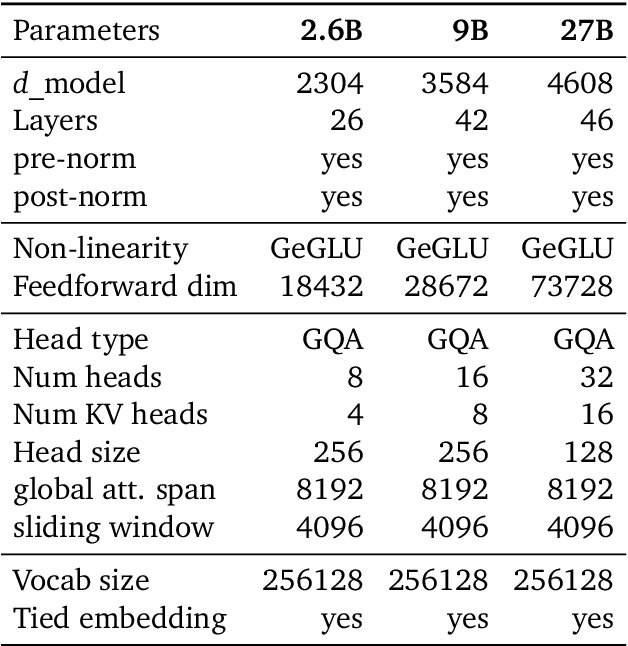
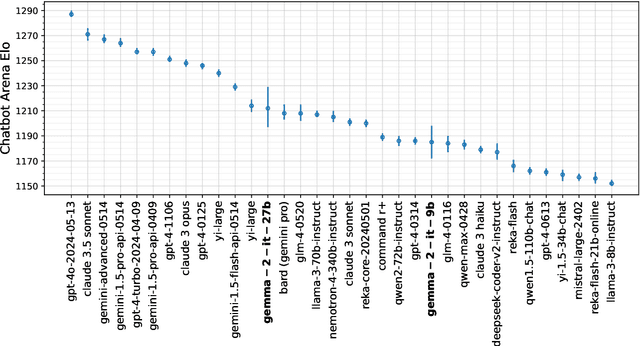
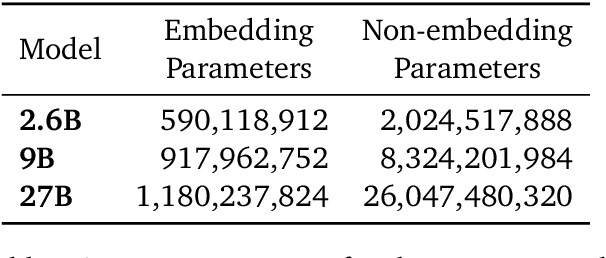
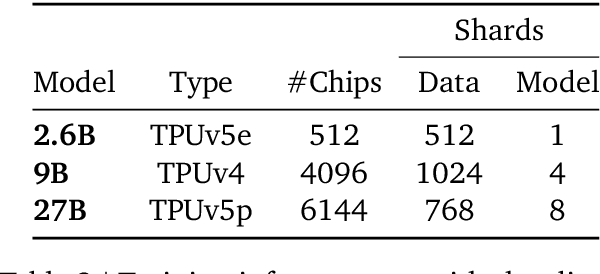
Abstract:In this work, we introduce Gemma 2, a new addition to the Gemma family of lightweight, state-of-the-art open models, ranging in scale from 2 billion to 27 billion parameters. In this new version, we apply several known technical modifications to the Transformer architecture, such as interleaving local-global attentions (Beltagy et al., 2020a) and group-query attention (Ainslie et al., 2023). We also train the 2B and 9B models with knowledge distillation (Hinton et al., 2015) instead of next token prediction. The resulting models deliver the best performance for their size, and even offer competitive alternatives to models that are 2-3 times bigger. We release all our models to the community.
Prefixing Attention Sinks can Mitigate Activation Outliers for Large Language Model Quantization
Jun 17, 2024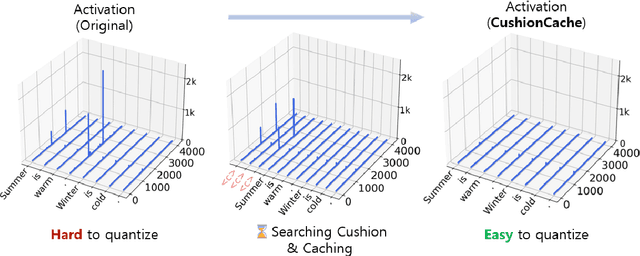
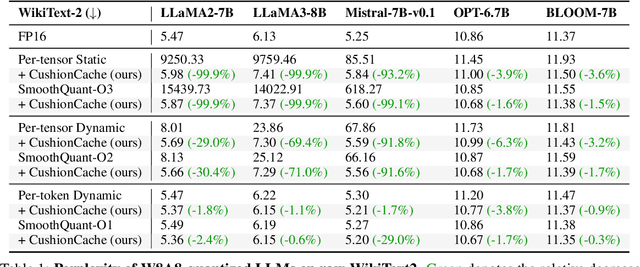
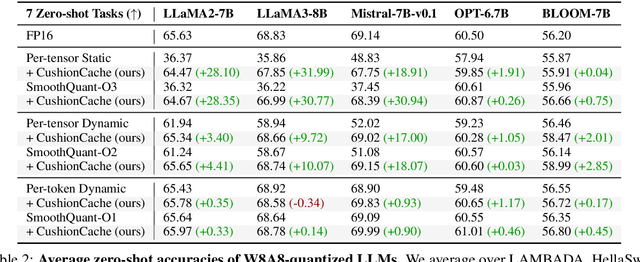
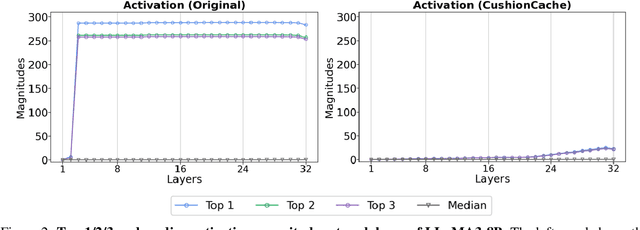
Abstract:Despite recent advances in LLM quantization, activation quantization remains to be challenging due to the activation outliers. Conventional remedies, e.g., mixing precisions for different channels, introduce extra overhead and reduce the speedup. In this work, we develop a simple yet effective strategy to facilitate per-tensor activation quantization by preventing the generation of problematic tokens. Precisely, we propose a method to find a set of key-value cache, coined CushionCache, which mitigates outliers in subsequent tokens when inserted as a prefix. CushionCache works in two steps: First, we greedily search for a prompt token sequence that minimizes the maximum activation values in subsequent tokens. Then, we further tune the token cache to regularize the activations of subsequent tokens to be more quantization-friendly. The proposed method successfully addresses activation outliers of LLMs, providing a substantial performance boost for per-tensor activation quantization methods. We thoroughly evaluate our method over a wide range of models and benchmarks and find that it significantly surpasses the established baseline of per-tensor W8A8 quantization and can be seamlessly integrated with the recent activation quantization method.
JaxPruner: A concise library for sparsity research
May 02, 2023


Abstract:This paper introduces JaxPruner, an open-source JAX-based pruning and sparse training library for machine learning research. JaxPruner aims to accelerate research on sparse neural networks by providing concise implementations of popular pruning and sparse training algorithms with minimal memory and latency overhead. Algorithms implemented in JaxPruner use a common API and work seamlessly with the popular optimization library Optax, which, in turn, enables easy integration with existing JAX based libraries. We demonstrate this ease of integration by providing examples in four different codebases: Scenic, t5x, Dopamine and FedJAX and provide baseline experiments on popular benchmarks.
 Add to Chrome
Add to Chrome Add to Firefox
Add to Firefox Add to Edge
Add to Edge